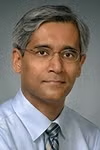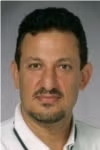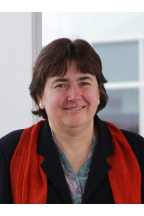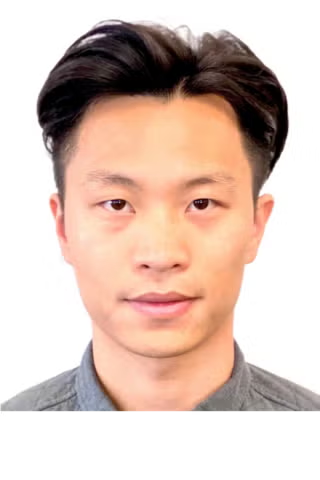
The Communications and Information Systems (CIS) research area in our department tackles some of the most pressing and complex challenges in communications science and information systems. Our faculty members are engaged in cutting-edge research across a broad spectrum of topics, from foundational theory to real-world applications. These include information theory, stochastic processes, statistical signal processing, coding and network codes, multimedia compression, pseudorandom sequences, cryptography, signal and image processing, digital communications, spread spectrum communications, wireless communications, networking, broadband and optical networks, cooperative and cognitive networks, MIMO systems, space-time communications, wireless and communication security, and more.
Many of our professors have held prestigious roles such as Associate Editors and Chief Editors for renowned IEEE journals including IEEE Transactions on Information Theory, Communications, Wireless Communications, and Vehicular Communications. Among our faculty, two hold University Research Chairs, and four are Canada Research Chairs, underlining the excellence and recognition of our team. Our researchers are recipients of numerous grants from federal and provincial governments, as well as industry partners, further emphasizing the impact and importance of their work.
The Department offers a comprehensive selection of graduate courses, covering topics like wireless communications, coding, signal processing, multimedia, security, and more. Our graduates emerge as experts, ready to drive innovation and advancements in the rapidly evolving field of communications and information systems.
Faculty members participating in Communications and Information Systems (CIS) Research:
Otman Basir

Biography
Dr. Otman Basir is a professor in the Department of Electrical and Computer Engineering at the University of Waterloo. He is also the Associate Director of the Waterloo Institute for Health Informatics Research, Director of Urban Informatics Corporation and Associate Director for the Pattern Recognition and Machine Intelligence Laboratory.
Dr. Basir’s research spans a variety of cutting-edge topics, including Intelligent Embedded Systems, Sensory Systems Design, Biologically Inspired Intelligent Systems, and Human-Computer Interface (HCI) Systems. He has authored and co-authored over 400 scientific publications and holds a remarkable 121 issued and pending patents.
In addition to his academic achievements, Dr. Basir is an entrepreneur. He is the founder, president, and CEO of Intelligent Mechatronic Systems (IMS), a leader in telematics and infotainment technologies. IMS is at the forefront of the connected car industry, merging telematics and infotainment technologies to create safer, smarter, and more sustainable driving experiences. Dr. Basir is also a co-founder of Voice-Enabled Systems and Technology.
Dr. Basir's outstanding contributions have earned him numerous prestigious accolades, including the Ontario Premier Research Excellence Award (PREA), the Canada Foundation Innovation Award, the Academic Leadership Award from the University of Guelph, and the Professor of the Year Award from the University of Guelph. His innovative work continues to influence both academia and industry.
Research interests
- Intelligent embedded systems
- Sensory systems design
- HCI/HMI systems
- Biologically inspired intelligent systems
- Hybrid systems
- Computer Engineering
- Software Engineering
- Embedded Neuro-Fuzzy systems design
- Reconfigurable sensor networks
- Mission critical systems
- Adhoc sensor networks
- Sensor fusion and integration
- Non-destructive testing (NDT)
- Machine vision
- Gesture recognition
- Discourse analysis
- Natural speech understanding
- Operational Artificial Intelligence
- Cybersecurity
- Infrastructure integrity
Slim Boumaiza

Biography
Dr. Slim Boumaiza is a professor in the Department of Electrical and Computer Engineering at the University of Waterloo. He is also director of the Centre for Intelligent Antenna and Radio Systems.
Dr. Boumaiza's research is focused on defining, conceptualizing, designing, and realizing high-performing microwave and millimeter wave circuits and systems for wireless communications (with applications in 4G, 5G and the Internet of Things). He directs the Emerging Radio System Research Group (EmRG), which conducts multidisciplinary research encompassing the semiconductor device, circuit, and system levels of radio hardware. Under his supervision, researchers investigate the areas of transistor modelling and characterization (at the semiconductor device level), ultra-wideband and highly efficient power amplifiers (at the circuit level) and low power linearization schemes (at the system level).
He is passionately involved in communicating knowledge of radio systems through teaching, supervision, and youth outreach. He has taught several undergraduate and graduate courses covering basics of electrical engineering and advanced topics in microwave engineering. Over 100 highly qualified personnel (undergraduate, master's, and PhD students, postdoctoral fellows, and other research staff) have worked under his supervision to date. Many have gone on to secure highly sought-after positions in industry. Dr. Boumaiza and his team actively participate in university-led efforts to engage youth and minorities and promote their interest in engineering.
Research interests
- Microwave and Millimeter Wave (mm-wave) Circuits and Systems
- High Efficiency Power Amplifiers for Wireless Communications (sub 6 GHz and mm-wave)
- Digital Predistortion Techniques for 4G and 5G Power Amplifiers and Massive MIMO\/Beamforming Transmitters
- Nonlinear Microwave Circuits Characterization and Modeling
- 5G Radio Hardware
- Advanced Circuits and Systems for Microwave and mm-wave Radio Front-ends (printed circuit boards and integrated circuit technologies)
- Advanced Signal Processing for Wireless Communications
Mohamed Oussama Damen

Biography
Dr. Mohamed Oussama Damen is a professor in the Department of Electrical and Computer Engineering (ECE) at the University of Waterloo.
Dr. Damen has an extensive background in research positions at multiple academic institutions, including École Nationale Supérieure des Télécommunications in Paris, France; the University of Minnesota and the University of Alberta. In June 2004, he joined the University of Waterloo, where he then became the Nortel Networks Associate Chair in Advanced Telecommunications from April 2005 to April 2010.
His current research interests include coding theory (particularly regarding lattices, coding and decoding algorithms), cross-layer optimization, multiple-input, multiple-output and spacetime communications, multiuser detection, and wireless communications.
Dr. Damen has received several awards, including the University of Waterloo ECE Research Excellence Award in 2007, the Early Researcher Award in the Province of Ontario from 2007 to 2010, and the Junior Research Fellowship from the French Research Ministry from 1996 to 1999. Dr. Damen has published numerous articles and journals with, and is currently a senior level member of, IEEE.
Research interests
- Coding Theory
- Cross-Layer Optimization
- Multiple-Input Multiple-Output (MIMO) Systems
- Space-Time Communications
- Multiuser Detection
- Wireless Communications
- Communication & Information Systems
- Connectivity and the Internet of Things (IoT)
- Communications and Access
Guang Gong

Biography
Dr. Guang Gong is a professor and former University Research Chair in the Department of Electrical and Computer Engineering at the University of Waterloo, where she leads the Communications Security (ComSec) Lab. She is an IEEE Fellow with a distinguished research portfolio spanning multiple domains, including cryptography, security, and wireless communications.
Her research focuses on the design and implementation of lightweight cryptographic systems, cryptography and cryptanalysis, as well as the security and privacy of Internet-of-Things (IoT) devices, blockchain-based IoT security, and privacy-preserving machine learning. Dr. Gong also explores security in cloud and network environments, ad-hoc networks, RFID systems, wireless security, multimedia security, and physical layer security.
Additionally, her work extends to signal design for wireless communications, including Code Division Multiple Access (CDMA), Orthogonal Frequency-Division Multiplexing (OFDM), and Multiple-Input Multiple-Output (MIMO) systems.
In 2005, Dr. Gong, in collaboration with former Ph.D. student Yassir Nawaz, proposed the WG stream cipher family, known for its unique randomness properties that distinguish it from other ciphers. More recently, she and Professor Mark Aagaard have implemented lightweight instances of this cipher (WG-5, WG-7, WG-8) in hardware to secure RFID systems and embedded devices. In February 2019, Dr. Gong’s team submitted four lightweight cryptographic schemes—ACE, SPOC, SPIX, and WAGE—to the NIST Lightweight Cryptography (LWC) competition.
Dr. Gong’s pioneering work continues to shape the fields of cryptography, security, and wireless communications.
Research interests
- Pseudorandom Sequence Generation
- Implementation of Lightweight Cryptographic Systems
- Lightweight Cryptography
- Cryptography and Cryptanalysis
- Security Algorithms and Protocols
- Security and Privacy of IoT, Blockchain, and Cyber-Physical Systems
- Privacy-Preserving Machine Learning
- Wireless Communications/Networking
- Cross-Layer and Physical Layer Security
Anwar Hasan

Biography
Dr. Anwar Hasan is a professor in the Department of Electrical and Computer Engineering at the University of Waterloo and holds the Ripple Chair. He is also a faculty member at Waterloo's Cybersecurity and Privacy Institute. From January 2013 to April 2018, Dr. Hasan served as the Associate Dean of Research and External Partnerships for the Faculty of Engineering.
Dr. Hasan's research focuses on cryptographic computations and embedded systems, dependable and secure computing, and security for cloud computing and the Internet of Things (IoT).
He has contributed to numerous books, journal articles, and conference papers and has received several awards recognizing his outstanding achievements in research.
Research interests
- Cryptographic Hardware
- Embedded Systems
- Dependable and Secure Computing
- Computer Arithmetic
- Computer Architecture
- Computer Security
- Network Security
- Computer & Software Engineering
- Cloud Technology
- Security
- Cybersecurity
- Blockchain
- Privacy and Cryptography
- Information Security
- Operational Security
Pin-Han Ho

Biography
Dr. Pin-Han Ho is a Professor in the Department of Electrical and Computer Engineering at the University of Waterloo. His research spans a wide range of topics, including broadband wired and wireless communication networks, survivable network design, wireless communications, cyber-physical systems, and the Internet of Things (IoT).
One of Dr. Ho's significant contributions, in collaboration with his PhD student Dr. James She, is the invention of Wireless Media Express™, a groundbreaking technology designed to address the challenge of wireless channel fading. This fundamental issue limits the effectiveness of wireless service providers in multicasting to intended receivers. Wireless Media Express™ generates an intelligent multicast signal that optimizes video quality for all receivers, regardless of their channel conditions.
This innovative technology has transformative applications, such as enabling users to access TV channels on handheld devices while maintaining consistent, high-quality live broadcasts. It also allows businesses to efficiently upload video advertising to various digital displays across a city—such as highway billboards, shopping mall screens, and subway terminals—targeted to different audiences based on the time of day.
Dr. Ho's ongoing research continues to drive advancements in communication technologies, with real-world applications that significantly enhance both consumer experiences and business operations.
Research interests
- Vehicular communications
- Wireless network security
- Cross-layer design
- Coded video multicasting
- MAC layer scheduling & performance analysis
- High availability design
- Integration of fiber and wireless
- Communication systems (FiWi)
- Information Systems
- Cloud technology
- Embedded systems
- Connectivity and Internet of Things
- Wireless communications/networking
- Optical network survivability
- Coded video multicasting
- Cognitive and femtocell networks
- Cybersecurity
- Infrastructure integrity
- IoT
- Communications and Access
- Application Domains
- Networking and Data
Amir Khandani

Biography
Dr. Amir Khandani is a professor and NSERC/Ciena Industrial Research Chair in the Department of Electrical and Computer Engineering at the University of Waterloo. He previously held a Canada Research Chair (Tier 1) in Wireless Communications and a Tier I Canada Research Chair in Information Theory. Currently, he holds the Senior Ciena-NSERC Industrial Research Chair on Network Information Theory of Optical Channels. Dr. Khandani has also held two senior NSERC Industrial Research Chairs, funded jointly by Blackberry/NSERC and Nortel/NSERC.
Dr. Khandani’s research focuses on the physical and media-access control (MAC) layers of telecommunications systems, information theory, and signal processing, with a primary emphasis on wireless and optical transmission. His work aims to deepen the understanding of foundational principles, advance the theory in key areas, and translate this knowledge into practical applications for commutations systems. He leads the Coding and Signal Transmission Lab.
Dr. Khandani earned his bachelor's and master's degrees in electrical engineering from Tehran University in 1985 and his PhD in electrical engineering from McGill University in 1992. He joined the University of Waterloo in 1993, where he has since supervised over 45 PhD students, 35 master's students, 35 postdoctoral fellows, and 20 research engineers. Many of his former team members have gone on to successful careers in industry and academia around the world.
Dr. Khandani is an active contributor to the wireless communications community, frequently serving on technical program committees for major conferences. He has also acted as a consultant to various industrial and government agencies and regularly delivers lectures and keynote speeches globally.
Research interests
- Information Theory with emphasis on networks
- Wireless Communications
- Structure of lattices
- Digital Communications
- Communication Systems
- Information systems
- Security
- Information Theory
- Signal Processing
- Optical Communications
- Wireless Transmission
- Optical Transmission
- Communication Networks
- Advanced Manufacturing
- Cybersecurity
- Infrastructure integrity
Oleg Michailovich

Biography
Dr. Oleg Michailovich is an Associate Professor in the Department of Electrical and Computer Engineering at the University of Waterloo, where he has been a faculty member since 2007.
His research interests include harmonic analysis, numerical optimization, and the theory of inverse problems, with a particular emphasis on their applications in medical image processing and analysis.
Research interests
- Signal and Image Processing
- Medical Image Processing
- Approximation Theory and Its Application
- Inverse Problems and Their Applications
- Medical Ultrasound and Functional MRI
- Statistical Signal Processing and Estimation
- Sparse Representations and Compressive Sensing
- Multiresolution Analysis and Wavelet Theory
- Vision-Based Control Systems and Tracking
- Geometric Image Processing
- Operational Artificial Intelligence
Patrick Mitran

Biography
Dr. Patrick Mitran is a Professor in the Department of Electrical and Computer Engineering at the University of Waterloo. From 2006 to 2007, he was a Lecturer in Applied Mathematics at the School of Engineering and Applied Sciences, Harvard University.
Dr. Mitran’s research interests include information theory and wireless communications, cross-layer design, and signal processing for 5G technologies.
He received the Government of Ontario Early Researcher Award in 2011 and is a Licensed Professional Engineer in the Province of Ontario. Dr. Mitran served as an Editor for IEEE Transactions on Communications from 2012 to 2016, and as an Associate Editor for IEEE Transactions on Information Theory from 2016 to 2019.
Research interests
- Communication Systems
- Information Systems
- Cooperative and Cognitive Networks
- Cognitive Radio
- Modulation
- Coding Theory
- Resource Allocation
- Information Theory
- Network Coding
- Statistical Signal Processing
- Beamforming
- Wireless Communications/Networking
- Connectivity and Internet of Things (IoT)
- Communications and Access
Omar Ramahi

Biography
Dr. Omar Ramahi is a professor in the Department of Electrical and Computer Engineering at the University of Waterloo, and is the Director of the Advanced Concepts Research Laboratory.
His research interests include radiating systems, renewable energy technology, biomedical applications of electromagnetic waves and fields, electromagnetic compatibility and interference, metamaterials and its engineering applications, and material measurements. In addition to his research, he co-founded Applied Electromagnetic Technology, LLC., and Wave Intelligence Inc.
Dr. Ramahi has received numerous awards as a result of his extensive research and teaching capabilities. He was recognized for his graduate research work with the 2010 University of Waterloo Award for Excellence in Graduate Supervision. Additionally, he was awarded the IEEE Electromagnetic Compatibility Society Technical Achievement Award in 2012. Dr. Ramahi is an elected IEEE Fellow.
He has written over 450 journal and conference papers on electromagnetic phenomena and computational techniques. EMI/EMC Computational Modeling Handbook is one of the notable books that Dr. Ramahi co-authored.
Research interests
- Radiating Systems
- Theoretical and Computational Electromagnetics
- Electromagnetic Compatibility
- Interference and Electronic Packaging
- Biomedical Applications of Electromagnetics
- Photonics
- Material measurements
- Antennas, Microwaves & Photonics
- Medical imaging
- Scanning
- Energy harvesting/bio-energy
- Renewable energy
- Sensors and devices
- Wireless communications/networking
Catherine Rosenberg

Biography
Dr. Catherine Rosenberg is a Professor in the Department of Electrical and Computer Engineering at the University of Waterloo. She is a Cisco Research Chair in 5G Systems (since 2018) and a former Canada Research Chair holder in the Future Internet (June 2010 to June 2024).
Dr. Rosenberg began her career at ALCATEL in France, and then at AT&T Bell Labs, USA. From 1988-1996, she was a faculty member in the Department of Electrical and Computer Engineering at École Polytechnique, Montreal, Canada. In 1996, she joined Nortel Networks in the UK where she created and headed the R&D Department in Broadband Satellite Networking. In August 1999, Dr. Rosenberg became a Professor in the School of Electrical and Computer Engineering at Purdue University where she co-founded in May 2002 the Center for Wireless Systems and Applications (CWSA). She joined the University of Waterloo in September 2004 as the Chair of the Department of Electrical and Computer Engineering for a three-year term.
Catherine Rosenberg was on the Scientific Advisory Board of the Orange Group (France-Telecom) from 2007 to mid 2015. She became its president from January 2013 to mid 2015. She is currently the president of the Scientific Advisory Board of the French IRT (Research and Technology Institute) BCOM on multimedia and networking (since 2014). She is also on the Editorial Board of the Proceedings of the IEEE.
She is an IEEE Fellow and was elected a Fellow of the Canadian Academy of Engineering in 2013.
She has authored over 200 papers on wireless networking, traffic engineering and energy systems, and has been granted eight US patents.
Research interests
- Wireless Networks (5G, IoT, etc.)
- Internet
- Multimedia
- Energy Systems
Xuemin (Sherman) Shen

Biography
Dr. Xuemin (Sherman) Shen is a University Professor in the Department of Electrical and Computer Engineering at the University of Waterloo, where he leads the Broadband Communications Research (BBCR) Lab, specializing in wireless communications and networking. He is a Fellow of the Institute of Electrical and Electronics Engineers (IEEE), the Royal Society of Canada, the Canadian Academy of Engineering, and the Engineering Institute of Canada. Professor Shen also serves as the Editor-in-Chief of the IEEE Internet of Things Journal and Springer Peer-to-Peer Networking and Applications.
His research focuses on a wide range of topics in wireless communication networks, including capacity analysis, mobility and radio resource management, quality-of-service provisioning, wireless/Internet interworking, network modeling, and stability and performance analysis. He has also been at the forefront of developing algorithms and protocols for wireless network security and privacy preservation. His work has been applied to various areas, including vehicular networks, wireless body area networks, remote e-healthcare systems, wireless ad hoc and sensor networks, and smart grid technologies.
Dr. Shen has received numerous accolades for his contributions to the field, including the R.A. Fessenden Award (2019) from IEEE Canada, the James Evans Avant Garde Award (2018) from the IEEE Vehicular Technology Society, the Joseph LoCicero Award (2015), and the Education Award (2017) from the IEEE Communications Society. He has also been recognized with the Award of Excellence in Graduate Supervision (2006) and the Outstanding Performance Award (5 times) from the University of Waterloo.
Research interests
- Wireless communications and networking
- Resource allocation and mobility management
- Wireless network security and user privacy
- Connectivity and Internet of Things
- Autonomous and connected car
- Smart communities
Shiyu Su

Biography
Dr. Shiyu Su received the B.S. degrees from Beijing University of Post and Telecommunication, China and Queen Mary, University of London, UK, in 2011, and the M.S. and Ph.D. degrees from University of Southern California (USC), Los Angeles, in 2013 and 2019, all in electrical engineering.
In 2022, he joined the Department of Electrical and Computer Engineering at the University of Waterloo, where he is currently an assistant professor. His research interests include high-speed data converters, wireless transceivers, digital phase-locked loop, advanced computing, and analog/mixed-signal design automation.
Dr. Su serves as a Technical Program Committee (TPC) Member of the IEEE International Solid-State Circuits Conference (ISSCC). He was the recipient of the IEEE Solid-State Circuits Society (SSCS) Predoctoral Achievement Award for 2017–2018, and the IEEE SSCS Student Travel Grant Award for 2019–2020, and a co-recipient of the Best Student Paper Award (First Place) at the 2022 IEEE Radio Frequency Integrated Circuits Symposium (RFIC). He was also a Ming Hsieh Institute Scholar from 2019 to 2020.
Research interests
- High-speed data converters
- Wireless transceiver
- Digital phase-locked loop
- Advanced computing
- Analog/mixed-signal design automation
Zhou Wang

Dr. Zhou Wang is a Professor in the Department of Electrical and Computer Engineering at the University of Waterloo. He is a Fellow of the Institute of Electrical and Electronics Engineers (IEEE), the Royal Society of Canada (RSC) – Academy of Science, and the Canadian Academy of Engineering (CAE). In addition, he is a certified Professional Engineer.
Dr. Wang has received numerous prestigious awards, including the 2021 Faculty of Engineering Excellence in Graduate Supervision Award, 2021 Technology Emmy Award, 2017 IEEE Signal Processing Society Sustained Impact Paper Award, and 2015 Primetime Engineering Emmy Award. Other accolades include the 2014 NSERC E.W.R. Steacie Memorial Fellowship Award, 2013 IEEE Signal Processing Magazine Best Paper Award, 2009 IEEE Signal Processing Society Best Paper Award, and several NSERC and Ontario Early Researcher grants.
An active contributor to the academic community, Dr. Wang has served on the editorial boards of IEEE Transactions on Image Processing, IEEE Transactions on Circuits and Systems for Video Technology, IEEE Journal of Selected Topics in Signal Processing, and IEEE Signal Processing Letters, among others. He has also contributed to the IEEE Technical Committees on Image, Video and Multidimensional Signal Processing and Multimedia Signal Processing.
Dr. Wang’s research interests encompass signal and image processing, computational vision and pattern analysis, multimedia coding and communications, and biomedical signal and image processing. With over 200 publications and more than 80,000 citations, his work has made a significant impact on the field.
Research interests
- Image processing
- Digital signal processing
- Computational vision
- Pattern recognition
- Machine Learning
- Multimedia communications
- Image and video compression
- Visual perception
- Biomedical signal processing
- Medical imaging
Liang-Liang Xie

Biography
Dr. Liang-Liang Xie is a Professor in the Department of Electrical and Computer Engineering at the University of Waterloo.
Dr. Xie’s research interests span wireless networks, information theory, adaptive control, system identification, and Shannon theory. He has published extensively in leading journals, including IEEE Transactions on Information Theory and IEEE Journal on Selected Areas in Communications. His conference contributions have been presented at major events such as the IEEE International Conference on Communications (ICC), IEEE Globecom, and the IEEE International Symposium on Information Theory (ISIT).
Research interests
- Information theory
- Adaptive control
- System identification
- Communication & Information Systems
- Wireless communications/networking
En-Hui Yang

Biography
Dr. En-Hui Yang is a professor in the Department of Electrical and Computer Engineering at the University of Waterloo and the founding Director of the Leitch-University of Waterloo Multimedia Communications Lab. He is also the co-founder of SlipStream Data Inc. (now a subsidiary of BlackBerry Inc., formerly known as Research In Motion) and a former associate editor for IEEE Transactions on Information Theory. He previously held a Tier 1 Canada Research Chair in Information Theory and Multimedia Data Compression.
Dr. Yang is known for co-developing the Yang-Kieffer algorithm, a numerical set of rules that use grammar-based coding to achieve lossless compression of text and image files. He is also the co-inventor of soft decision quantization (rate distortion optimization quantization or trellis quantization), an efficient coding technology used in image and video applications to improve compression, with widespread use in products like smartphones and web browsers.
His research interests span multimedia compression, information theory, digital communications, image and video coding, image understanding and management, big data analytics, information security, and deep learning. His work aims to develop technologies that enhance the storage capacity of computers, accelerate and improve the reliability of data transmission, improve data security, and make big data more understandable.
Dr. Yang is a Fellow of the Canadian Academy of Engineering, a Fellow of the IEEE, and a Fellow of the Royal Society of Canada. In 2024, he was honored with the title of 'University Professor' by the University of Waterloo in recognition of his exceptional scholarly achievements and international pre-eminence.
Research interests
- Multimedia Data Compression
- Coding & Modulation
- Information Theory
- Digital Communications
- Description Complexity Theory
- Communication & Information Systems
- Source & Channel Coding
- Image & Video Coding
- Multimedia Communications
- Data Analytics
- Information Security
- Deep Learning
Weihua Zhuang

Biography
Dr. Weihua Zhuang is a University Professor in the Department of Electrical and Computer Engineering at the University of Waterloo, where she leads the Broadband Communications Research (BBCR) Lab. She was previously a Tier I Canada Research Chair in Wireless Communication Networks. Dr. Zhuang has been recognized with fellowships from prestigious organizations including the IEEE, the Royal Society of Canada (RSC), the Canadian Academy of Engineering (CAE), and the Engineering Institute of Canada (EIC). In 2021, she was honoured by the University of Waterloo with the designation of "University Professor" in recognition of her exceptional scholarly achievements and international preeminence.
Dr. Zhuang’s current research involves engineering solutions for future communication networks for applications in industrial IoT, autonomous driving, and smart communities, to name a few. Her research program encompasses topics such as network virtualization and slicing, service-customized topology for virtual networks over both wireless and wireline domains, adaptive networking protocols for virtual networks, and multidimensional resource allocation for transmission, processing, and caching. The research is empowered by both technical insights from model-based theoretical analysis and machine learning tools, in order to efficiently and effectively accommodate temporal-spatial dynamics and uncertainties of data traffic load due to user mobility and new use cases. Through her research, Professor Zhuang hopes to develop cost-effective algorithms and protocols for network automation in future integrated space, air and terrestrial communication systems to facilitate various new applications and to enhance users’ experience.
Research interests
- Wireless communications and networking
- Connectivity and Internet of Things (IOT)
- Connected and autonomous vehicles
- Smart grid
Adjunct faculty members participating in Communications and Information Systems (CIS) Research:
George Freeman (Adjunct)

Biography
Dr. George Freeman is an Adjunct Professor Emeritus in the Department of Electrical and Computer Engineering at the University of Waterloo.
His research focuses on signal processing for digital communications, the development of optimal lossless data compression algorithms, and applications in storage and recognition for speech and image coding.
Beyond his research achievements, Dr. Freeman has been honored with the Dedicated Service Award from the Canadian Association of University Teachers, recognizing his outstanding service to academic staff associations.
Research interests
- Signal Processing
- Wavelet Analysis
- Medical Image Processing
- Speech Recognition
- Data Compression
Fakhri Karray (Adjunct)

Biography
Dr. Fakhri Karray is a Professor Emeritus in the Department of Electrical and Computer Engineering. He previously held the Loblaws Research Chair in Artificial Intelligence and served as co-Director of the University of Waterloo Artificial Intelligence Institute.
His research focuses on operational artificial intelligence, cognitive machines, natural human-machine interaction, and autonomous intelligent systems. Dr. Karray’s work has applications in the development of cognitive, self-aware machines, robots, and vehicles, as well as in predictive analytics for supply chain management and intelligent transportation systems. He is a Fellow of the Canadian Academy of Engineering, the Engineering Institute of Canada, and the IEEE, and has served as an IEEE Distinguished Lecturer.
Research interests
- Operational Artificial Intelligence
- Computational intelligence
- Natural Human-machine interaction
- Cognitive Robotics
- Autonomous and self aware machines
- AI Based Supply Chain
Ravi Mazumdar (Adjunct)

Biography
Dr. Ravi Mazumdar is a Professor Emeritus in the Department of Electrical and Computer Engineering at the University of Waterloo, where he also held a University Research Chair. He has been recognized as a Fellow of the IEEE for his significant contributions to modeling, control, and performance analysis of networks, and is also a Fellow of the Royal Statistical Society. Dr. Mazumdar received the Best Paper Award at IEEE INFOCOM 2006 and was a Finalist for the Best Paper Award at INFOCOM 1998.
Since 2012, Dr. Mazumdar has served as the J. D. Gandhi Distinguished Visiting Professor at the Indian Institute of Technology, Bombay. He is also a Senior Editor for the IEEE Journal of Selected Areas in Communications.
His research interests encompass applied probability and stochastic analysis, with a focus on complex networks, network science, randomized algorithms, and wireless systems.
Research interests
- High-speed Networks
- Wireline and Wireless Networks
- Network Modeling and Control
- Performance Evaluation
- Applied Probability and Queueing Theory
- Statistical Signal Processing
- Stochastic Analysis
- Mathematical Finance
- Teletraffic Theory
- Communication Systems
- Information Systems
- Big Data / Analytics
- Cloud Technology
- Wireless Communications / Networking
- Applied Probability
- Modeling
- Traffic, Optimization, and Pricing Issues in High-Speed Networks
- Multi-resolution Methods for Statistical Signal Processing
- Financial Mathematics
- Stochastic Control and Filtering
- Learning and Adaptive Control of Complex Systems
- Applications of Game Theory in Networks
- Connectivity and Internet of Things (IoT)
- Cybersecurity
- Infrastructure Integrity
- IoT (Internet of Things)
- Communications and Applications